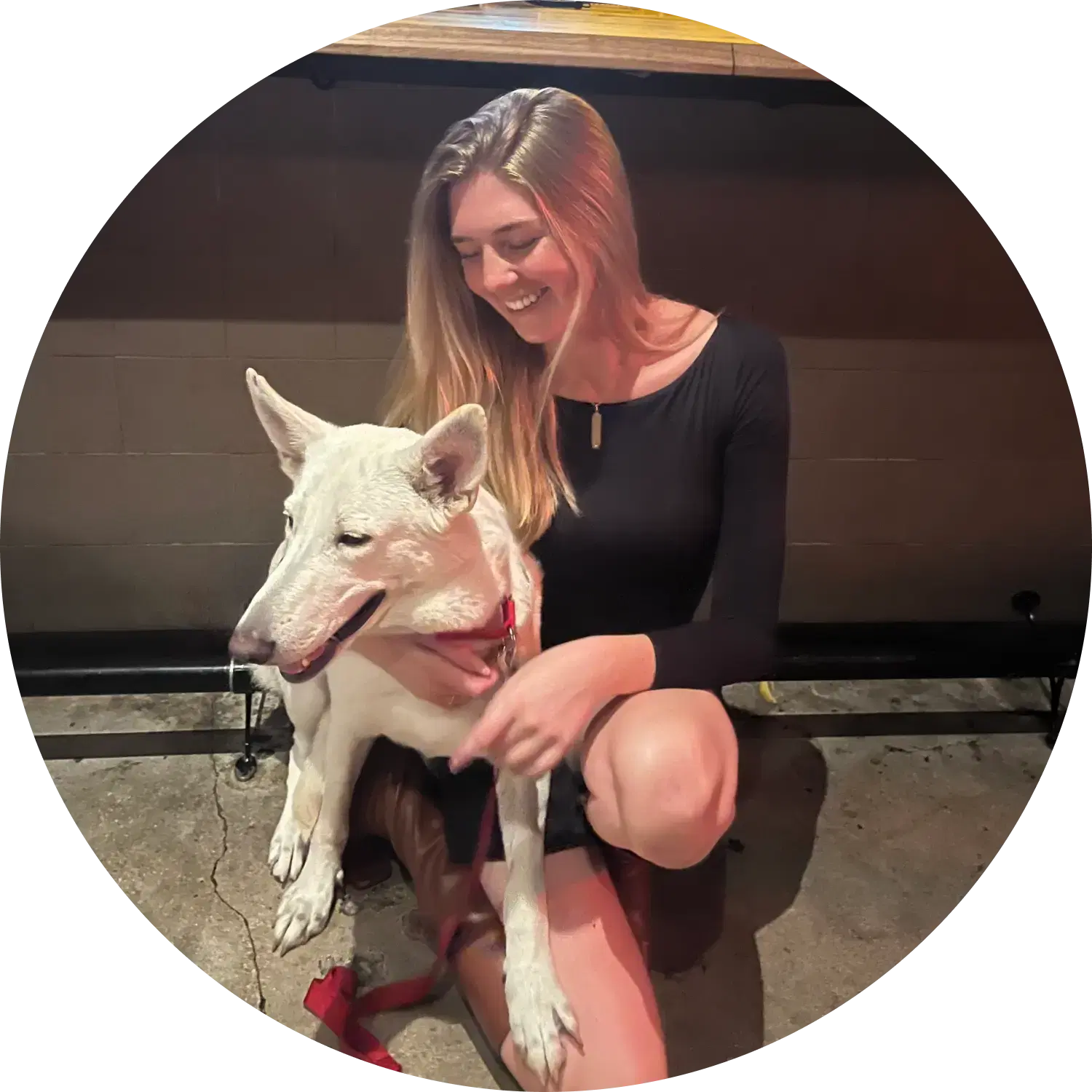Guacamole has become incredibly popular in recent years, largely thanks to the growing demand for fresh, natural, and minimally processed foods. It is often seen as a wholesome, clean-label option for humans, which makes many dog owners assume it must be healthy for their pets too.
But you’re smart to check before sharing. The truth is that guacamole is not a good choice for dogs. Their digestive systems are very different from ours. A dog’s stomach produces about 100 times more acid than a human’s, which helps them destroy harmful bacteria before food passes to the intestines. While that high acidity is beneficial for breaking down meat and killing pathogens, dogs are not equipped to extract nutrients from fruits and vegetables the same way humans are. They also have a much lower tolerance for certain human foods.
Let’s take a closer look at why guacamole can be bad for dogs.
Why Could Guacamole Be Bad for Dogs?
To understand why guacamole is risky, it helps to break it down into its main ingredients and see how each one affects your dog.
Avocado
Avocados contain a substance called persin, a natural fungicidal toxin. While persin is far more dangerous to larger animals like horses or cows, dogs can still get sick from eating too much. Small amounts may not cause immediate harm, but repeated consumption or eating a large quantity at once can lead to vomiting, diarrhea, and serious health problems due to the high fat content.
Lime Juice
Limes contain citric acid and essential oils that can irritate a dog’s digestive system. In large amounts, they can cause lime poisoning. Most dogs also dislike the strong taste and smell of lime.
Salt
A little salt is safe, but too much can cause sodium poisoning. Guacamole often contains added salt, which is another reason it’s best avoided.
Cilantro
This is one of the few guacamole ingredients that can actually benefit dogs in small amounts. Cilantro provides antioxidants and vitamins A, C, and K, along with minerals like magnesium, calcium, and potassium, which can support skin and immune health. However, moderation is key.
Onion
Onions are highly toxic to dogs. They contain a compound called N-propyl disulfide that damages red blood cells, leading to anemia. Even small amounts can be dangerous. Garlic, another common ingredient in guacamole, poses similar risks.
Jalapeño
Spicy ingredients like jalapeños contain capsaicin, which can cause stomach pain, diarrhea, and other digestive issues in dogs.
Guacamole recipes can vary, but these ingredients alone make it clear that it is not a safe snack for dogs. Even if your guacamole doesn’t contain onions or jalapeños, the avocado and lime juice are enough reason to keep it out of your dog’s bowl.
Can Dogs Have Sour Cream?
Sour cream is a fermented dairy product that is generally safe for dogs to eat in small amounts. Unless your dog is lactose intolerant, a teaspoon or so on occasion should not cause harm. However, it should only be offered as an occasional treat. Too much sour cream can contribute to weight gain and digestive upset. If you decide to give your dog some, choose a low-fat variety without added flavoring or sugar.
What Sauces Are Safe for Dogs?
Here are a few sauce-like foods that can safely add flavor or moisture to your dog’s meal in moderation:
Natural oat milk
Canned fish liquid (such as from tuna or salmon in water)
Pineapple juice
Ripe tomato juice
Low-sodium chicken broth
Unsweetened applesauce
Coconut oil
Pumpkin puree
While your dog might enjoy these from time to time, they should never replace a balanced diet. Around 90 percent of your dog’s nutrition should come from high-quality dog food, with the rest limited to occasional treats or toppers.
More About Spot Pet Insurance
Having a dog brings plenty of joy, but it can also come with unexpected moments. Dogs sometimes eat things they shouldn’t or develop digestive issues from foods that don’t agree with them. Some of these situations are mild, while others may require urgent veterinary attention or even surgery.
Pet health insurance helps provide financial protection when those unexpected medical situations arise. With Spot Pet Insurance, you can get help covering up to 90% of eligible veterinary expenses related to accidents, illnesses, or injuries.
Dog Insurance plans can help:
Covers Unexpected Veterinary Costs: Spot pet insurance plans cover the eligible costs of unexpected veterinary treatments, such as emergency surgeries, X-rays, and prescription medications for covered conditions.
Customizable Plans: Choose your annual limit, reimbursement rate, and deductible from a range of options, and create the plan that will fit the needs of your pet and your budget.
Peace of Mind: With Spot pet insurance plans, pet parents can know that they can provide the best care for their pet with less worry about the cost.
To learn more about Spot Plans or to get a free quote, click here.

The resident animal enthusiast at Spot. I have a lifetime of pet parent experience. If it has fur, feathers, or scales, I’ve probably shared my home with it. I aim to be a reliable source, blending experience with a dedication to the well-being of pets.
Burke, Anna. "Can Dogs Eat Avocado?" American Kennel Club, 01 Nov. 2025, https://www.akc.org/expert-advice/nutrition/can-dogs-eat-avocado/.
McNally, D., Boswell, E. "Can Dogs Eat Guacamole? Is Guacamole Safe for Dogs?" DogTime, 14 May 2025, https://dogtime.com/dog-health/dog-food-dog-nutrition/96181-can-dogs-eat-guacamole-safe.
Pet Expert Team. "Can Dogs Eat Avocado?" Purina, 01 Oct. 2025, https://www.purina.com/articles/dog/feeding/can-dogs-eat/avocado.
The information presented in this article is for educational and informational purposes only and does not constitute or substitute for the advice of your veterinarian.












